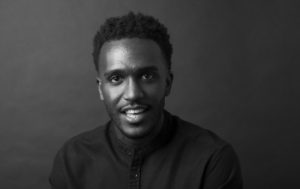On Feb. 18, 2019, activist, educator and minister Nyle Fort visited Siena College to share his experiences as a Black male in the United States as one of the keynote speakers for Black History Month. Within just a half hour of speaking, he transformed the atmosphere of the room through his passionate delivery and the enthusiastic responses from the audience. Not only did Fort speak of his own history growing up in poverty and in a time of rampant discrimination against black people, but he also talked about African American history in general.

Fort has traveled the world in an effort to spread global transformative justice and has many accolades. He helped build the Black Lives Matter movement in Ferguson, Missouri. He has visited Amsterdam in partnership with International Fellowship of Reconciliation to address racialized violence. He was invited to participate in the Vatican’s III World Meeting of Popular Movements to help continue world justice with 300 other grassroots activists. Currently, Fort is a Ph.D. student at Princeton University where he is the recipient of the Ford Predoctoral Fellowship and Forum for Theological Exploration Fellowship.
Before beginning his speech, Fort explained that what he was going to present to the audience was like a buffet. He was going to share many different ideas and viewpoints similar to the different foods available at a buffet, some of which one might agree with and others which one may not like.
Fort opened by talking about his mother. When he was a child, she would tell him and his brother Chad stories before they went to bed. In every story, the main characters were Prince Nyle and Prince Chad and they would go on royal adventures together. Fort highlighted the juxtaposition between the fantasy bedtime stories and the realities that black men faced during the mid-90s. These include police brutality, Reagan cutting welfare programs, and the well-established “War Against Drugs.” He explained that the systematic discrimination against Black people was just another way to call them the n-word.
While his mother may have not known the depth of America’s discrimination or the long term effects they may cause, Fort explained that she knew the stories would let her sons be black and free instead of a statistic. He emphasized the importance of stories because they tell people “what they are, how to think, how to love, and what is possible.”
This brought Fort to his next point about how the United States handles its past, specifically in the light of Black History Month. He stated that it was written by white people and focuses on four points: slavery, Rosa Parks, Martin Luther King Jr. and President Barack Obama. This narrative severely flattens the experiences of black people in American history. Similar to what Tim Wise said just a few weeks earlier, Fort echoed that MLK was far more than the quote “I had a dream.” He described that America has presented him as a “magical creature that comes around once a year to tell us we are okay.” He explained that MLK was also just one part of a much bigger picture. History has ignored many other significant activists who fought just as hard for civil rights including Ella Baker, Bayard Rustin and Fannie Lou Hamer.
Fort began relating black American history back to the present, asking why we still face so many of the same issues that we did decades ago such as all black and all white schools. He explained this is because America has never properly confronted its black history. Fort compared this to falling and getting an open wound; you have to clean it out otherwise it will become infected. The United States cannot ignore 400 years of slavery, lynching and mass incarceration and not expect to become infected. He stated that we will not survive with color blind history.
Fort closed his talk by stating that we are too focused on calming the storm instead of confronting the weather in general. He explained that to make change, we should concentrate less on racist individuals but racism as a system. He encouraged the audience that they can make a difference by stating that the universe “bends towards justice because we push it” and that we must dream for change.

